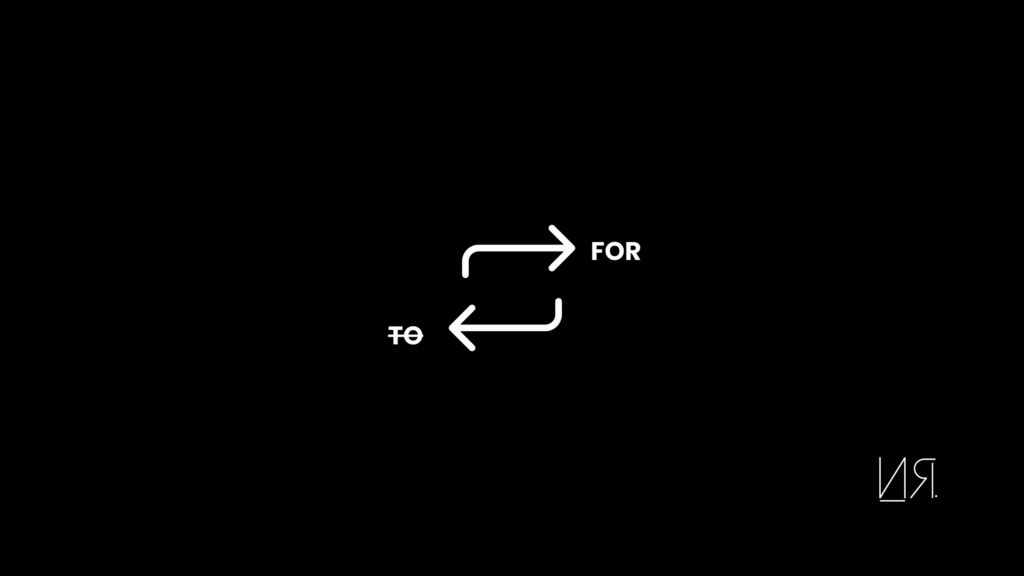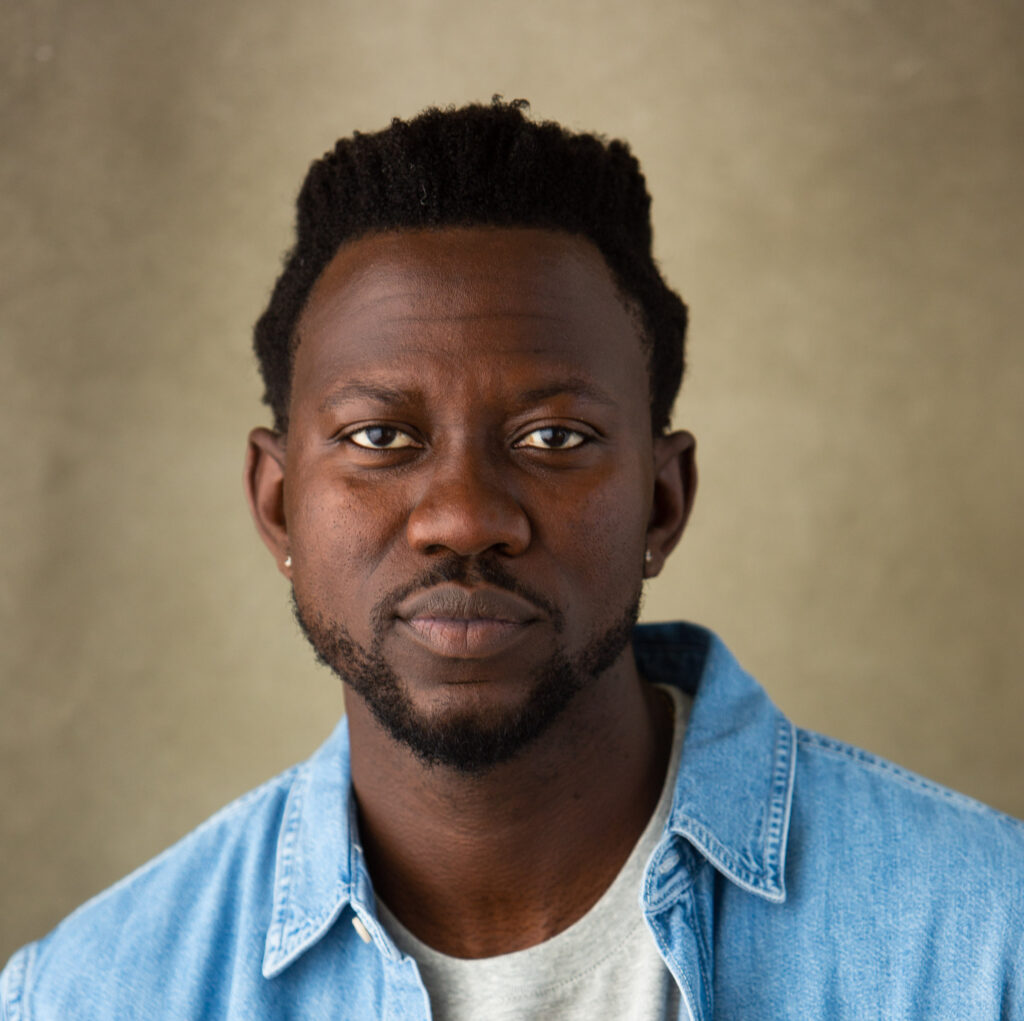I write these letters to help curious minds and avid learners reflect, gain perspective, and find meaning in work and life.
I learned something a few years back:
At the end of 2020, I was seated near the window in my apartment in Oakland. On my computer, my QuickBooks for my business was open. I stared at a flat line.
That line was the sales number. It has been stuck at $0 for months.
My business had been growing for the past three years until 2020 hit. It took a nosedive.
I pinched the top of my nose, eyes tightly-shut, shaking my head, saying:
“I’m getting towards my mid-30s.”
“This is not how I envisioned it.”
“It was supposed to be up, up, and onward”
“Not down, side, and spiral.”
I reached out to a mentor to get some advice. We got on a zoom call.
I told him my struggles.
He said: “Nifemi, you sound like you’re in survival mode. Don’t stay there for too long.”
“Remember: you are not a victim. Everything happening isn’t happening to you. It’s happening for you. It’s here to facilitate your growth.”
That was the light switch I needed to turn the boat around.
Freedom’s Price
It’s easy to be reactive and identify as someone that something is always happening.
As a victim, the world is always centered around you.
The sky is falling.
The politicians are ruining the country.
The bosses are not raising the salary.
The customers are not buying.
When you’re a victim, you can kick back and throw away responsibility.
You can claim and point fingers out there and say: “hey it wasn’t me. It’s that ex and my former boss that messed me up.”
I don’t blame you for that.
Most of us want freedom but we are afraid of it. Freedom comes at a price, and that price is self-responsibility.
In the book, the Pedagogy of the Oppressed, the Brazilian philosopher and educator, Paulo Freire, talked about the banking system of education.
That education system, which you and I, most likely went through had “a teacher” as an authority figure that told you “the student” about the world.
These teachers explained a “fixed reality” that you were supposed to conform to.
It killed curiosity at an early age and turned most of us into objects immersed in a predetermined world.
Lies….all lies.
The reality is that the world you live in is malleable.
And you are not an object.
You are a subject of the continuous transformation that’s happening.
You have a role to play in that transformation. When you accept your role, as a subject of change, you don’t look at the world as a fixed thing. You see it for what it is: a field that’s affected by every movement, every action, every thought you have.
You are an empowered subject that is the constant transformative dance of life.
You are hope itself.
But to do that, you have to pay the price for freedom, and that’s self-responsibility.
Reframe For Growth: The Self-responsible Way:
Every human is creative and has the ability for critical thinking.
You have agency to transform reality.
When you become a subject of transformation, you accept your role in transforming reality, leading a self-directed life, and cultivating meaning.
Here are a few steps to let go of victimization and embrace your agency to change.
1. Accept the Present
The worst person to lie to us yourself.
Let’s start with some personal responsibility and radical candor. To move forward in life and your business, you have to take full account of where you currently are. Ask yourself questions like:
- Where are my now?
- How did I get here?
- What worked, what didn’t?
- Where would I like to go?
Writing this down helps.
Externalize your thoughts so it’s not taking up space in your mind. Once it’s on paper, you can look at them, reflect, refine.
Use self-reflection as a personal counsel because none is going to do the work for you.
2. Ask For Feedback
We all have blindspots.
We can only see things from our limited perspective. If you’ve adopted a victim mindset over years, it’s hard to shed off the identity. You’ve become self-centered. One of the best ways to get out of that, is to ask people for feedback.
This is very important for your personal life and your business too.
Make sure you get it from a curated set of people that you trust.
Not every feedback is helpful. It has to be constructive.
Ever so often, I send out messages to a few friends and family just asking: what are some of my good traits? What’s a weakness you’d wish I could improve on?
What I learned a few years ago was that your weakness can manifest when you overplay your strengths. So you have to find balance.
It might be tough to ask for feedback.
It’s a gift that allows you to see yourself from a different perspective.
3. Seek Out Mentors
Get guidance from people that have walked the path you’re on.
I was working at a Philz Coffee shop, in San Mateo, when I met the mentor that gave me the advice earlier.
He asked: “Are you a tech entrepreneur?”
I pulled out my headphones and responded: “well, not really but I run an advisory business.”
He asked me what I was working on. I told him I was writing a book about music.
He said: “wow, I’m writing a book too – about developing an entrepreneurial mindset.”
He read my manuscript. I read his. I learned he had sold two companies and was on his third. I stayed in touch, and he eventually became a mentor.
Your mentors can come from random conversations at a coffee shop. You can bond over books, music, and business.
They can give you gems that will save you years of mistakes.
Seek out mentors.
4. Build Your Mastermind
You’ll stop playing victims when you realize everyone got their own shit going on.
(Probably even worse than yours)
Going on an entrepreneurial path can be lonely. Not a lot of people understand what you’re doing. You lose friendships along the way. When things aren’t great, you get reclusive.
Then you talk to another entrepreneur and you realize: damn, you’re going through it too huhn?
It’s not only entrepreneurship. It’s just life.
New job.
New city.
New lifestyle.
Lost job.
Lost identity.
Far from home.
Anything that has to do with a transition in life builds up uncertainty and can be difficult to navigate on your own.
That’s why it’s important to find a community of like-minded people (a mastermind) to share your stories, build empathy, and to keep one another accountable.
It’s like running a marathon with friends. It’s just easier when you do it together.
Find interest-driven communities and foster the connections.
It increases hope.
Start With Compassion…..
You are a product of hope.
The best way to approach life is to have a sense that tomorrow can be better than today. When you realize that reality is malleable, you build your personal agency to affect changes in your life, business, and community.
Adopt self-responsibility by accepting the present, asking for feedback, seeking out mentors, and finding like minded people to journey together.
But you have to start all this by being compassionate to yourself.
Remember that what’s happening now will pass. It’s not happening to you. It’s happening for you.
Yours truly,
Nifemi



